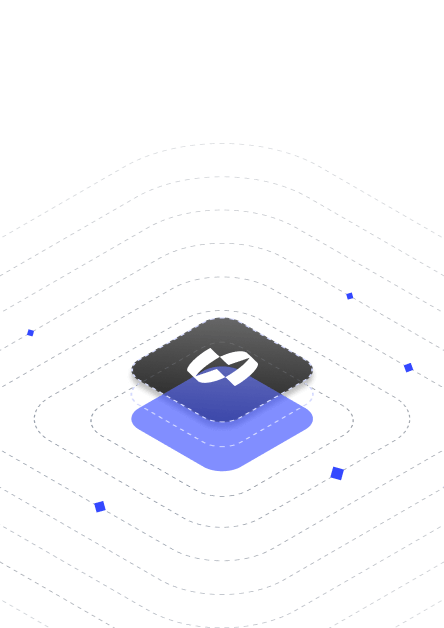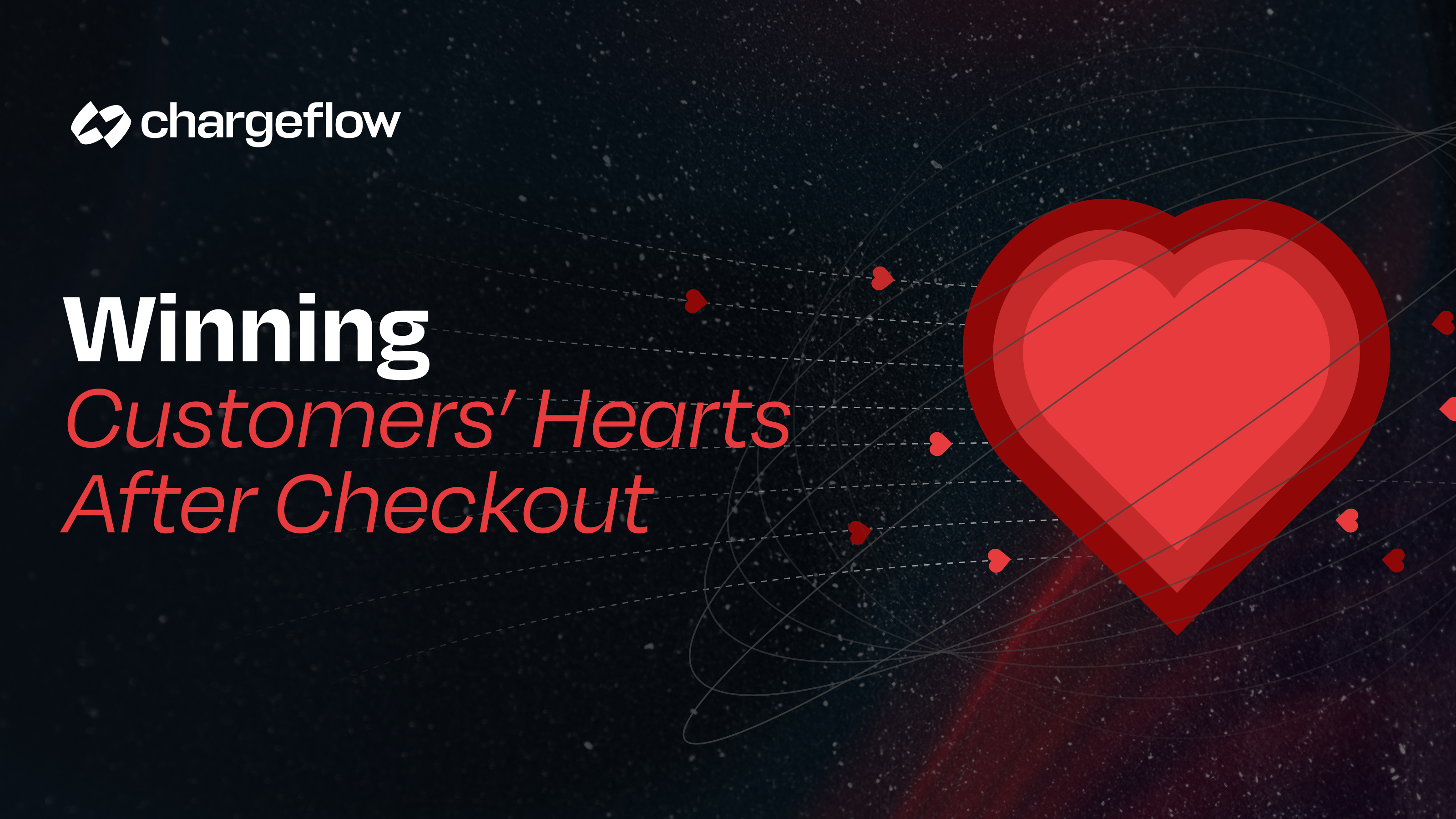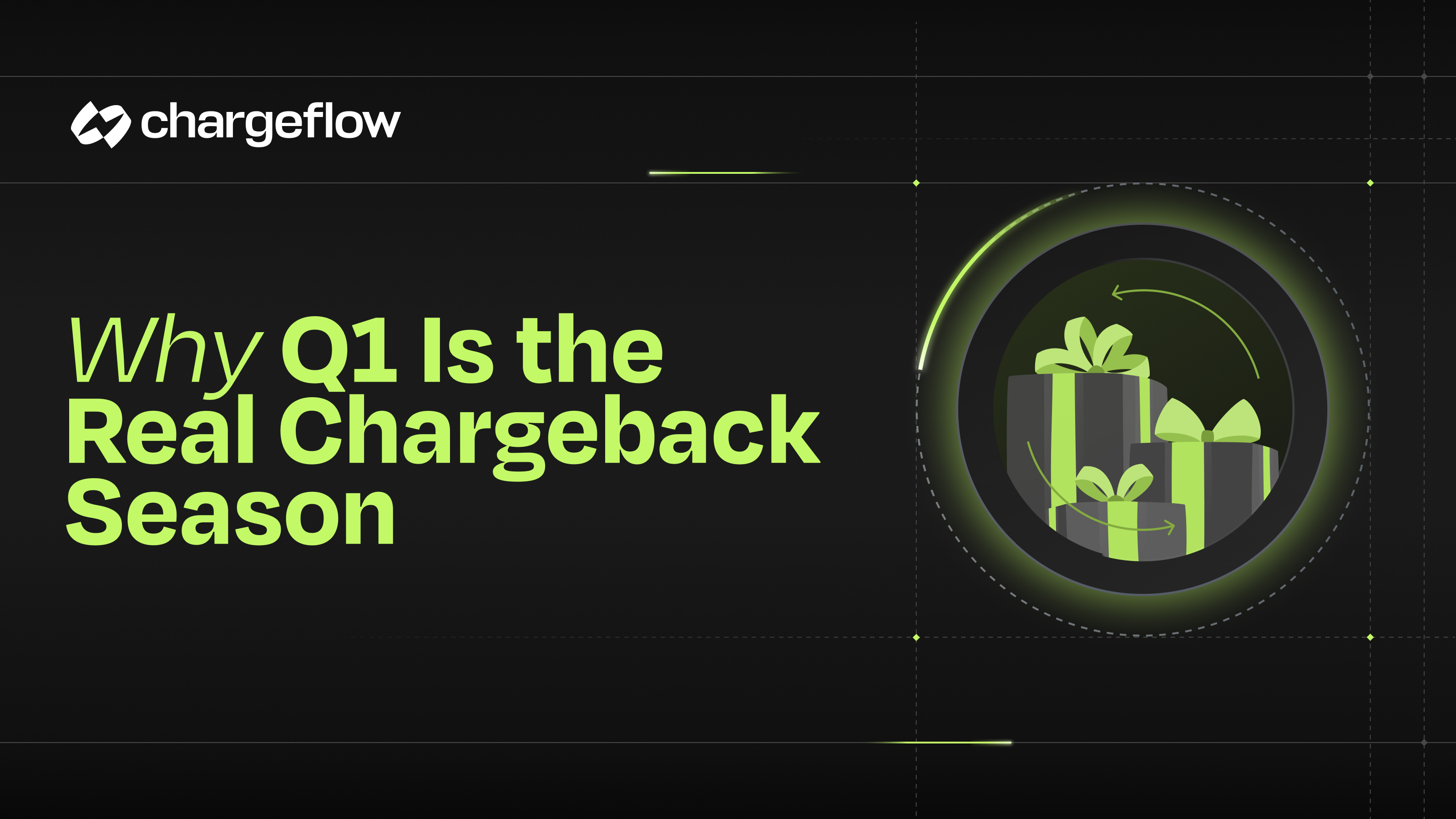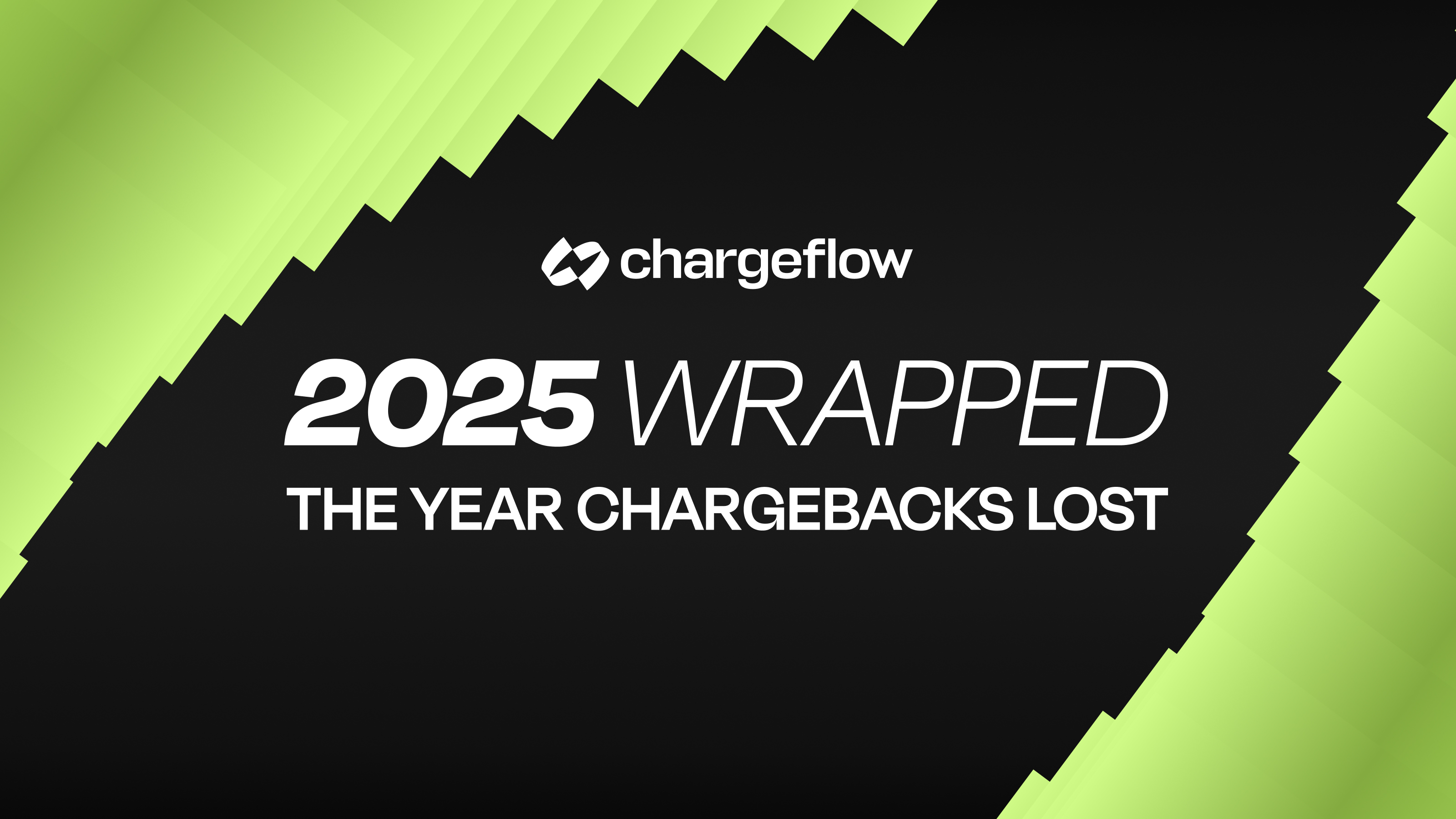Exploring New Payment Options with Banking as a Service

Chargebacks?
No longer your problem.
Recover 4x more chargebacks and prevent up to 90% of incoming ones, powered by AI and a global network of 15,000 merchants.
Discover innovative payment options with Banking as a Service. Unlock new opportunities for seamless transactions and enhanced user experiences.
In today's rapidly changing financial landscape, traditional payment methods often fall short. Enter Banking as a Service (BaaS), a game-changing solution. BaaS empowers businesses to explore new payment options and revolutionize their operations.
By leveraging BaaS providers, companies can tap into innovative payment solutions, creating seamless experiences for customers. This article delves into BaaS, its core principles, diverse payment options, implementation process, and future innovations.
Discover how BaaS transforms payments and drives businesses forward. Get ready to explore Banking as a Service!
Understanding Banking as a Service (BaaS)
Banking as a Service (BaaS) is a revolutionary concept that is transforming the financial industry. It offers a new way for businesses and consumers to access banking services and payment solutions.
At its core, BaaS refers to the provision of banking services through APIs (Application Programming Interfaces) by specialized BaaS providers. These providers offer a wide range of financial functionalities, such as account management, payments processing, and compliance services. By leveraging BaaS, businesses can integrate these services seamlessly into their own applications, products, or platforms.
The value proposition of BaaS lies in its ability to streamline and simplify financial processes. Instead of building banking capabilities from scratch, businesses can leverage the expertise and infrastructure of BaaS providers. This allows for faster time-to-market, cost savings, and enhanced flexibility in meeting customer needs.
One of the primary advantages of BaaS is the access it provides to a wide range of financial services. By utilizing BaaS, businesses can offer their customers features like opening bank accounts, making payments, and managing transactions, all within their own platforms.
Moreover, BaaS offers scalability, allowing businesses to grow and adapt to changing market demands. As customer needs evolve, BaaS providers can quickly develop and offer new functionalities and services, reducing the burden on businesses to keep up with technological advancements.
Another crucial aspect of BaaS is its compliance and security features. BaaS providers adhere to rigorous regulatory standards, ensuring that businesses can operate within the legal framework.
By leveraging the infrastructure and expertise of BaaS providers, businesses can focus on their core competencies while leaving the complexities of regulatory compliance to the experts.
Exploring New Payment Options Enabled by BaaS
1. Mobile Payments
Mobile payments have revolutionized the way we conduct transactions. With the integration of Banking as a Service (BaaS) in mobile payment apps, you can enjoy seamless and convenient payment experiences.
BaaS enables secure connections between mobile apps and financial institutions, allowing you to make payments directly from your smartphone. Say goodbye to carrying cash or credit cards – with BaaS-powered mobile payments, you can pay for goods and services with just a few taps on your screen.
Whether you're shopping online or making in-store purchases, BaaS empowers you with a fast and secure payment option.
2. Peer-to-Peer (P2P) Payments
Peer-to-peer (P2P) payments have gained immense popularity, enabling you to transfer funds directly to friends, family, or even businesses. BaaS plays a crucial role in enhancing P2P transactions by providing seamless integration and secure payment channels.
With BaaS-powered P2P payments, you can easily split bills, pay back borrowed money, or send funds to loved ones without the hassle of traditional banking methods. Enjoy the convenience of instant transfers, making it easier than ever to manage your finances and maintain strong connections with others.
3. Cross-Border Payments
Cross-border payments have historically been cumbersome and expensive. However, with BaaS-powered solutions, conducting international transactions becomes much more efficient. BaaS providers leverage their network of banking partners worldwide to offer competitive foreign exchange rates and faster processing times.
Say goodbye to excessive fees and long waiting periods – BaaS-enabled cross-border payments enable businesses and individuals to transfer funds across borders with ease, enabling global connectivity and fostering international trade.
4. Contactless Payments
In today's fast-paced world, contactless payments have gained significant momentum. BaaS takes contactless payments to the next level by offering advanced features and enhanced security.
With BaaS-enabled contactless transactions, you can make purchases by simply tapping your card, smartphone, or wearable device. The integration of BaaS ensures that your payment information remains secure and encrypted, providing peace of mind while enjoying the convenience of quick and effortless transactions.
5. Subscription Billing
Managing recurring payments for subscriptions can be a hassle, but BaaS simplifies the process. By integrating BaaS into subscription billing systems, businesses can automate payment collection, ensuring timely and hassle-free transactions.
BaaS-powered subscription billing streamlines the management of recurring payments for both businesses and customers. Forget about manual invoicing and chasing late payments – BaaS empowers businesses to provide seamless subscription services while offering customers a hassle-free payment experience.
6. E-commerce Payments
The world of e-commerce continues to expand, and BaaS integration has transformed online transactions. BaaS empowers e-commerce platforms by providing secure payment gateways, fraud detection systems, and seamless transaction processing.
With BaaS-enabled e-commerce payments, businesses can offer customers a user-friendly and secure checkout experience.
Enjoy the convenience of quick and secure online purchases, knowing that your sensitive payment information is protected by BaaS-powered security measures.
6. Digital Wallets
Digital wallets have become increasingly popular, and BaaS plays a significant role in enhancing their functionality. With BaaS-enabled digital wallets, you can securely store payment information and make contactless payments with ease.
BaaS integration enhances digital wallets by providing additional security features and enabling seamless connectivity with various financial institutions.
Say goodbye to the need for physical cards – BaaS-powered digital wallets offer a convenient and secure payment solution for your everyday transactions.
Implementing BaaS Solutions
1. Choosing the Right BaaS Provider
When selecting a BaaS provider, there are several factors you should consider. Firstly, evaluate the provider's security measures to ensure your sensitive data and transactions are protected. Look for industry-standard encryption and authentication protocols.
Secondly, scalability is crucial to accommodate your business's growth. A BaaS provider should offer flexible solutions that can scale alongside your needs.
Lastly, consider customization options to tailor the BaaS solution to your specific requirements. Look for providers that allow you to integrate their services seamlessly into your existing infrastructure.
2. Integration and Implementation Process
Integrating BaaS solutions into your existing systems requires a well-structured implementation process. Start by assessing your current systems and identifying any potential challenges that may arise during integration.
Develop a step-by-step plan to ensure a smooth transition. Communication with your BaaS provider is key to address any concerns and ensure a successful implementation. Regular updates and testing throughout the process will help identify and resolve any issues promptly.
3. Regulatory and Compliance Considerations
When implementing BaaS solutions, it's crucial to adhere to regulatory and compliance requirements. Familiarize yourself with the regulatory frameworks applicable to BaaS, such as data protection and privacy laws.
Ensure that the BaaS provider you choose follows these regulations and can provide the necessary documentation. It is essential to prioritize the security and privacy of your customers' financial data. Collaborate with legal experts to navigate any legal challenges and ensure full compliance with the relevant regulations.
By carefully selecting the right BaaS provider, following a well-defined integration plan, and staying compliant with regulations, you can successfully implement BaaS solutions for your business.
It will enable you to unlock the benefits of streamlined payment processes, enhanced security, and improved customer experiences. Embrace the power of BaaS and revolutionize your payment solutions.
The Future of BaaS and Payment Innovation
As we dive into the future of payment solutions, Banking as a Service (BaaS) emerges as a catalyst for innovation in the financial landscape. BaaS has already revolutionized traditional banking by offering businesses and consumers new payment options and enhanced financial services.
So, what can we expect from the future of BaaS and payment innovation? Let's explore.
1. Enhanced Customer Experience
BaaS is poised to elevate the customer experience by providing seamless and personalized payment solutions. With advancements in technology, BaaS providers will leverage artificial intelligence and machine learning to better understand customer preferences and behaviors.
2. Integration with Emerging Technologies
The future of BaaS will witness deeper integration with emerging technologies, such as blockchain, Internet of Things (IoT), and artificial intelligence. Incorporating custom IoT development services can further enhance connected device integrations for smart banking solutions.
These technologies have the potential to streamline payment processes, enhance security, and enable real-time transactions. By leveraging blockchain, BaaS can offer secure and transparent cross-border payments, eliminating intermediaries and reducing costs.
3. Open Banking Ecosystem
The concept of open banking, fueled by BaaS, will continue to gain momentum. Open banking allows third-party developers to build applications and services around financial institutions' data and functionality.
This collaborative approach fosters innovation, encourages competition, and gives consumers greater control over their financial data. BaaS will serve as the foundation for creating a robust and interconnected open banking ecosystem.
4. Rise of Embedded Finance
Embedded finance, where financial services are seamlessly integrated into non-financial platforms, is set to disrupt traditional banking. BaaS will play a pivotal role in enabling embedded finance by providing scalable infrastructure and APIs for businesses to embed financial services within their offerings.
5. Global Expansion and Financial Inclusion
BaaS has the potential to bridge the financial gap and promote financial inclusion worldwide. As BaaS solutions become more accessible and affordable, underserved populations will gain access to financial services previously out of reach.
6. Continued Focus on Security
With the increasing prevalence of digital transactions, security will remain a top priority for BaaS providers. Future innovations will focus on advanced authentication methods, biometrics, and robust encryption techniques to ensure secure payment processes. Trust and confidence in BaaS solutions will be vital to drive widespread adoption.
Final Thoughts
Banking as a Service (BaaS) revolutionizes payment solutions by offering convenient, secure, and efficient options.
Mobile payments, P2P transactions, cross-border payments, contactless payments, subscription billing, e-commerce payments, and digital wallets are all enhanced through BaaS integration.
By embracing BaaS, businesses and individuals stay ahead in the ever-evolving payment landscape, ensuring seamless and rewarding transactions.

Chargebacks?
No longer your problem.
Recover 4x more chargebacks and prevent up to 90% of incoming ones, powered by AI and a global network of 15,000 merchants.
















































.png)








